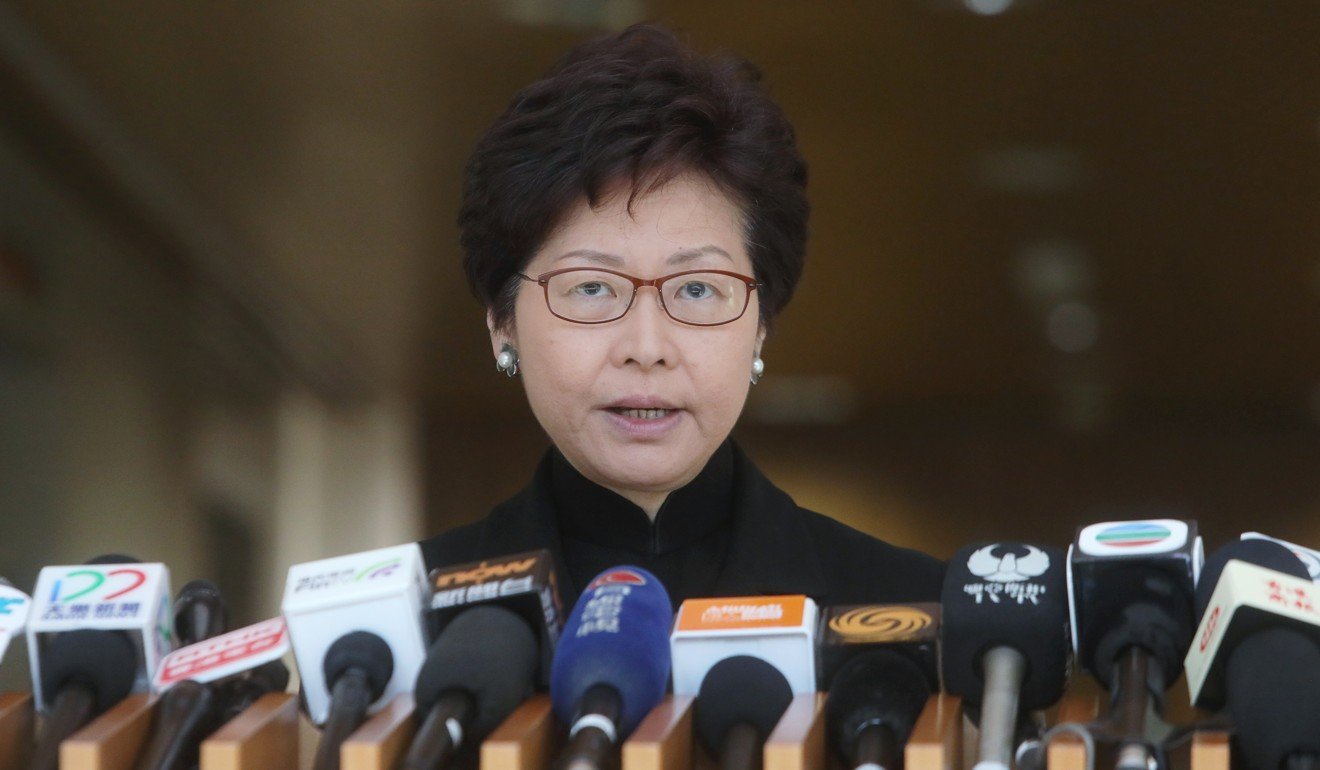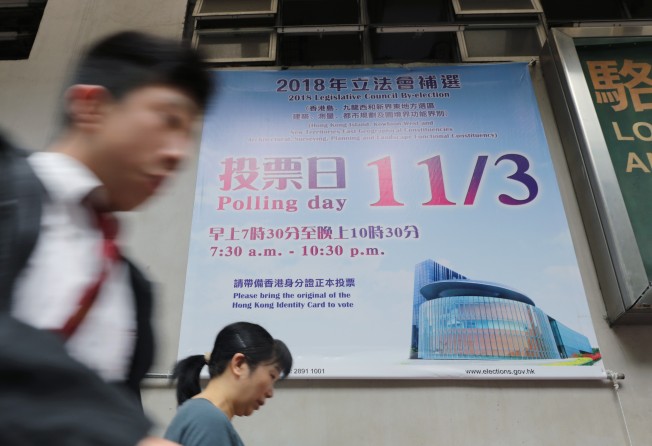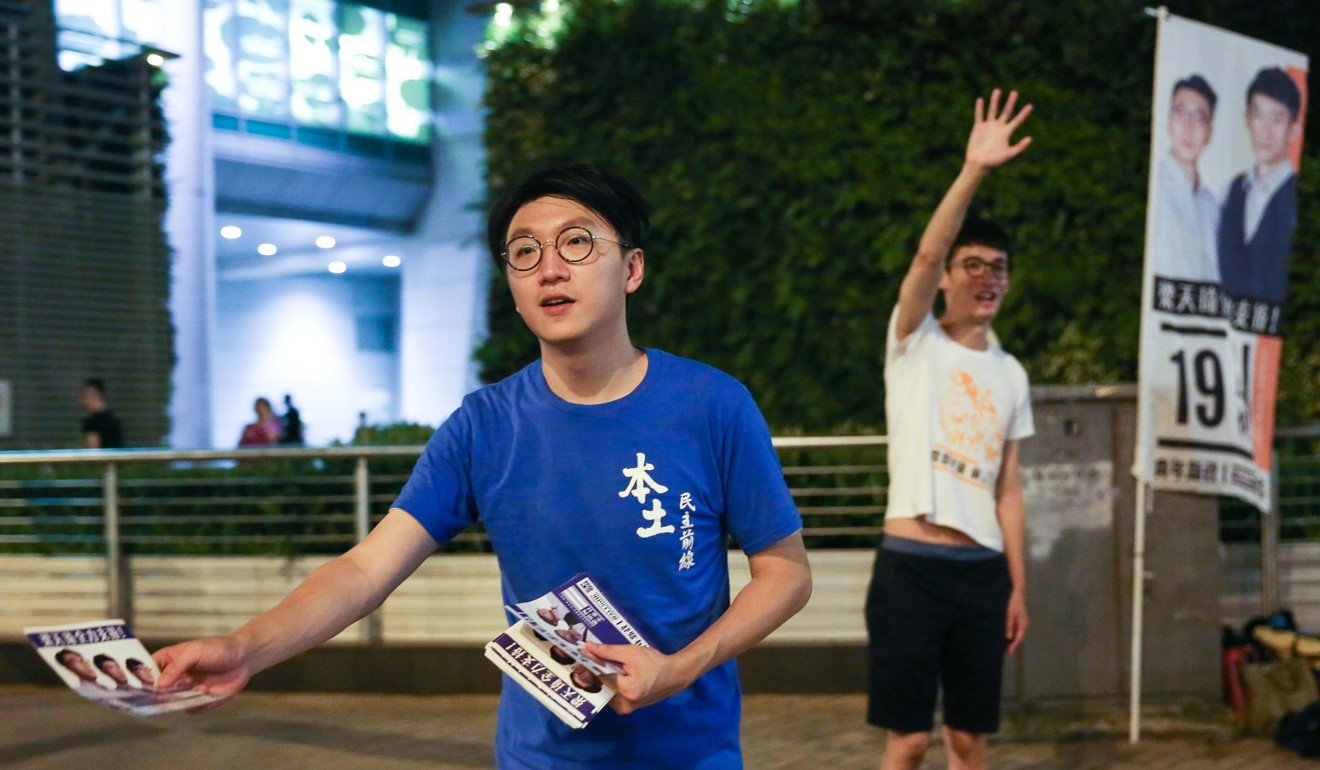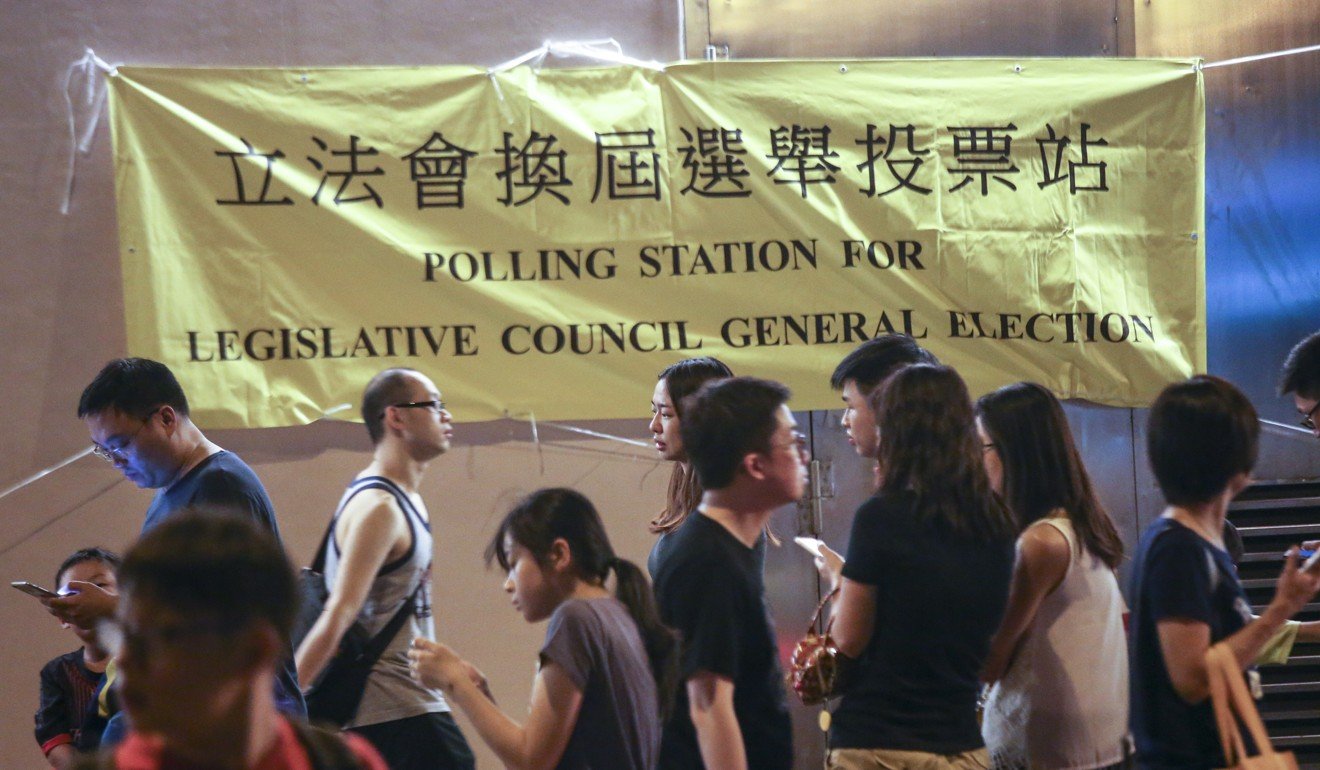
Moderates and miracles: what to look out for in this weekend’s Hong Kong election
Some 2.1 million registered voters will on Sunday decide who will fill four of the six seats in the Legislative Council by-election, which will also be the first poll since Carrie Lam took office. But can the pan-democrats reclaim the seats?

By Monday morning, Hong Kong’s pro-democracy bloc will know whether it has won back its critical minority in the city’s legislature, after six allies were unseated in 2016 over their improper oath-taking.
Some 2.1 million registered voters will on Sunday decide who will fill four of the six seats in the Legislative Council by-election, which will also be the first poll since Chief Executive Carrie Lam Cheng Yuet-ngor took the helm last July.

While the pro-democracy camp tends to enjoy the upper hand in direct elections because of its wider support base, the unexpectedly quiet atmosphere ahead of the vote has brought uncertainty and mixed up the odds.
Here are five things to watch in the by-election.
1. Which way will the moderate vote swing in Hong Kong Island?
The voters in the Hong Kong Island constituency are generally regarded as being more bourgeois and educated – and more inclined to take a middle-of-the-road approach.
Although the pro-democracy bloc still enjoys an advantage over its conservative rivals in the constituency, its vote share has shrunk over the past decade, sliding from 58.7 per cent in 2008 to 54.8 per cent in 2012.
In 2016, it plunged to 48.1 per cent amid a surge of support for moderate candidates Ricky Wong Wai-kay, an entrepreneur, and Gary Wong Chi-him, of the centrist think tank Path of Democracy. The pair together took 11.5 per cent of moderate votes – the biggest share among the five geographical constituencies – and further narrowed the difference between the pro-democracy and Beijing-friendly blocs to 8.2 percentage points.
All eyes will be on whether these moderate voters will be Hong Kong Island kingmakers.

Judy Chan Ka-pui, of the pro-establishment New People’s Party, is adamant she can lure the moderates, arguing the voters “had hoped to resolve conflicts through rational means” in the wake of the political disputes of the past few years.
On the other hand, the pro-democracy politicians – radical and moderate – put aside their differences to canvass votes for Au Nok-hin, the backup for banned candidate Agnes Chow Ting of Demosisto. But Au, formerly of the Democratic Party, admitted the lack of tracking polls this year has added uncertainty to the race, as there is no information for voters to reference before casting their ballots.
Independents Edward Yum Liang-hsien and Ng Dick-hay are also running in Hong Kong Island.
2. Will New Territories East localists spoil the pan-democrats’ chance of winning?
If Admiralty is the place where Hongkongers had their “political awakening” in 2014 when the Occupy movement broke out, then New Territories East is the localists’ breeding ground. The constituency was the first to be severely hit by the influx of mainland Chinese tourists and parallel traders in recent years, thanks to the MTR’s East Rail Line.
Escalating tensions between Hongkongers and mainlanders fuelled the city’s localist – and then pro-independence – drive a few years ago.
Despite losing in the symbolic New Territories East by-election in 2016, Edward Leung Tin-kei, the poster boy of the independence movement, took 15.4 per cent of the votes and declared from then on the three blocs – pan-democrat, localist and pro-establishment – should stand neck to neck.
New Territories East has always been a pro-democracy stronghold, enjoying a vote share of 57.6 per cent and winning six out of the nine constituency seats in the 2016 general election.

But NeoDemocrat Gary Fan Kwok-wai this year could have some difficulty taking the seat as he has apparently failed to win the hearts and minds of localists.
Some opinion leaders in localist circles recently called on their supporters to adopt a “scorched-earth policy” by casting blank votes instead of endorsing Fan, whom they said is not a true localist.
Fan’s rival Bill Tang Ka-piu is running under the banners of two key pro-Beijing groups, after the former Federation of Trade Unions legislator joined the Democratic Alliance for the Betterment and Progress of Hong Kong (DAB) ahead of the by-election.
Also running in New Territories East are centrist Nelson Wong Sing-chi, moderate conservative Christine Fong Kwok-shan, self-styled politician Estella Chan Yuk-ngor and pro-family activist Joyce Chiu Pui-yuk.
3. Can Edward Yiu beat a local district councillor after ‘parachuting’ into Kowloon West?
Surveyor Edward Yiu Chung-yim is the only ousted lawmaker who is seeking a comeback in the by-election. But the former legislator – who formerly represented the Architectural, Surveying, Planning and Landscape functional constituency of some 7,600 voters – has switched tack by running in Kowloon West, with over 489,450 voters.
Although Yiu scored a landslide victory in the pro-democracy camp’s primary, some doubt whether the former lawmaker can impress Kowloon West voters in the space of just a few months.
His DAB opponent Vincent Cheng Wing-shun has been a Sham Shui Po district councillor since 2007.
In 2016, the pro-democracy bloc received 57.2 per cent of the votes while the pro-establishment side scored 37 per cent. While pan-democrats won four out of the six seats, the two top scorers, Ann Chiang Lai-wan and Priscilla Leung Mei-fun, are both from the pro-establishment bloc.
In the run-up to the election, Yiu led a team of cyclists on an evening tour around the constituency to lobby support.
Cheng – who earlier held a rally attended by former government officials – also made an emergency appeal, saying his chances were “very critical” and called on voters to support him and not someone who “parachuted” into Kowloon West.
4. Is a miracle possible in the architectural functional constituency?
Of the four vacated seats, observers believe the Architectural, Surveying, Planning and Landscape functional constituency will be the hardest fight for the pro-democracy camp.
Edward Yiu was the first pan-democrat to win the constituency – a pro-establishment bastion – since the city’s handover in 1997. Yiu won with 2,491 votes, beating the then incumbent Tony Tse Wai-chuen by 482 votes. Another pro-establishment challenger, Bernard Lim Wan-fung, received 1,235 votes. The pan-democrat, Southern district councillor Paul Zimmerman, might find it difficult to repeat the result this time.
One of the key factors behind Yiu’s victory in 2016 was the infighting between the pro-establishment bloc, which is not an issue this time. Lim did not run and instead endorsed Tse.
But there is hope for the pan-democrat. Despite having been attacked this year for not possessing a professional qualification in either architecture, surveying, planning or landscaping, Zimmerman won the most number of votes – 2,524 – within the sector in the 2016 poll to decide the makeup of the Election Committee to elect the chief executive. Tse and Lim received 1,438 and 1,043 votes respectively.

Meanwhile, the result might also be affected by a potentially low voter turnout, given the limited polling stations available in New Territories West and Kowloon East – where there is no by-election.
Just 11 polling stations will be set up in New Territories West and four in Kowloon East – Kowloon West in comparison has 72 stations.
5. Will the pro-democracy camp be able to turn the tide in Legco if it regains all four seats?
At the risk of sounding pessimistic, many in the camp admit the answer to this question is “no”.
In the wake of the disqualification of the six pro-democracy lawmakers, the Beijing-friendly camp last December took advantage of their opponents’ weakened ranks to tighten the legislature’s rule book to curb filibustering – the pan-democrats’ only means to block unpopular new laws.
The possible return of four pro-democracy lawmakers will not help to rewrite the rule book. Any such amendments require majority support from both the geographical and functional constituencies, with the latter always under the control of the conservatives.
Still, the by-election can be seen as a de facto referendum on Hongkongers’ take on the city’s administration, and its contentious decision to block Agnes Chow from running in the poll.